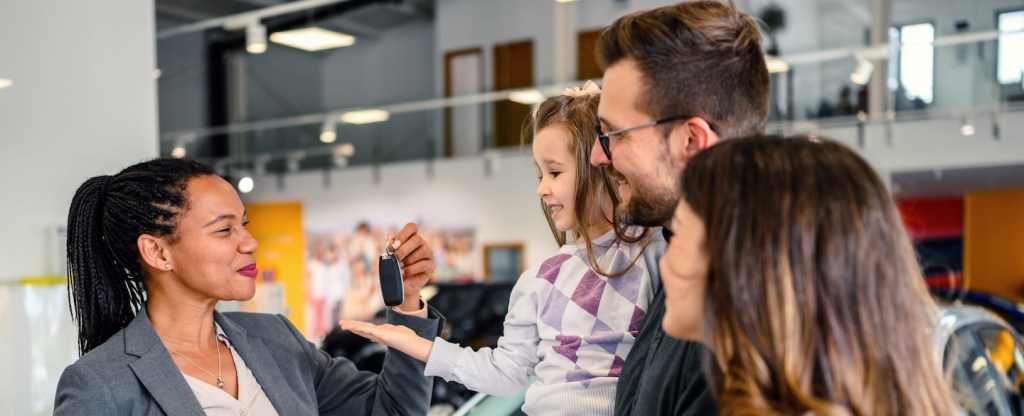Buying a new car
Buying a brand new car is an exciting prospect. Whether you’re visiting a showroom or buying online, you’re likely to have a personalised experience where you can test drive the car as many times as you’d like and a salesperson can talk you through all of your options.
There are lots of benefits to buying new, such as newer technology, which could help with fuel consumption, but this will vary depending on the make and model of the car. Some of the more universal benefits to buying new include:
- You can choose the exact car you want with whatever specifications are important to you. This could be anything from the colour and finish of the car’s exterior, to something more technical like the car’s suspension.
- You don’t need to worry about the car’s history. Buying new means you can guarantee that you’re the first person to drive it, so you know there won’t be any nasty surprises down the road.
- You’ll benefit from the manufacturer’s warranty. Most warranties in the UK last at least 3 years from the date of purchase.
You’ll also need to keep in mind that there are also potential downsides to buying new, such as:
- It could take longer to get your car. While you can benefit from customising your new car to suit your exact needs, that will also mean that it needs to be custom made, and so won’t be ready for you to pick up the day you buy it.
- New cars lose their value very quickly. According to the AA, new cars will have lost as much as 40% of their value a year after they are purchased.
- New cars cost more than used cars, and as a result, your insurance could be higher if you buy a new car than if you had bought a used one.
Buying a used car
Buying a used car will usually be cheaper than buying a brand new one, but there are other factors to consider before making your purchase.
- You’re likely to have a lot more choice if you aren’t looking for a specific car. For instance, if you know you want a small 5-door car, you could have a lot more options when searching for used cars.
- You could save on insurance. Having a used car – which will cost less for the insurers to replace – could save you money on your insurance premiums.
- It could be more environmentally friendly to buy a used car – as long as it’s up to current emission standards.
The main concerns when buying a new car are to do with the car’s history.
- If your car is more than three years old, you’ll need to take it for annual MOTs.
- You’ll also need to check whether the vehicle is under the manufacturer’s warranty.
- No warranty also means you’ll be liable for anything that goes wrong with the car from the moment you take ownership.
- An older car will also mean older technology. This could mean your car is less fuel efficient than some of the newer models on the market.
- A used car has obviously been used by someone else, so it’s important to buy from a reputable reseller to make sure you have an accurate idea of the car’s history.
Whichever option you choose, remember to do your research before you buy and make sure whatever agreement you reach works for you and your finances.
